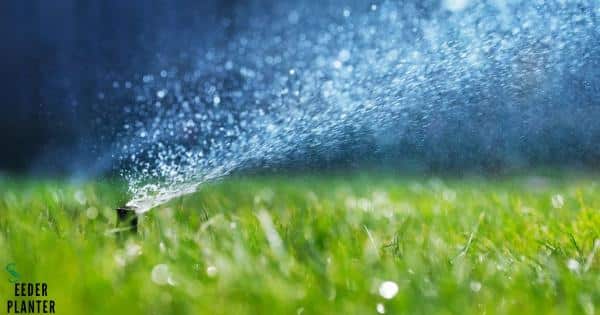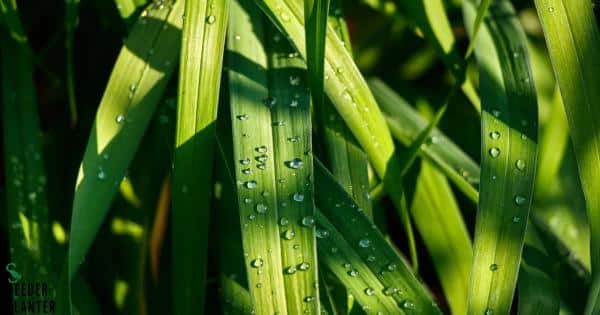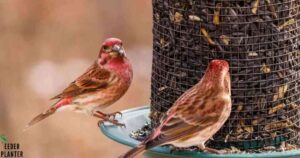The best time to plant grass seed in the UK is during the autumn months (September to November) or in early spring (March to April), when soil temperatures are favorable for germination and establishment.
Transform your lawn into a lush carpet of greenery by strategically sowing grass seed during the UK’s optimal windows. Ever you wonder about which id the Best Time To Plant Grass Seed UK. A resilient lawn that thrives in the seasons’ ideal conditions. Don’t miss out on the chance to cultivate a vibrant.
For optimal results, plant grass seed in the UK during the autumn months (September to November) or early spring (March to April). These periods provide favorable soil conditions for germination and robust lawn development, ensuring a vibrant and healthy lawn. Avoid planting during extreme weather or winter frost for best outcomes.
Factors influencing the timing of grass seed planting in the UK
The timing of grass seed planting in the UK is influenced by various factors, including soil conditions, and the type of grass being sown. Here are some key factors to consider:
Soil Conditions
Moisture Content: Adequate soil moisture is crucial for successful germination. Planting during periods of regular rainfall or providing supplemental irrigation is important.
Soil Temperature
Soil temperature affects seed germination. Warmer soil temperatures generally promote faster and more reliable germination.
Grass Type
Different grass species have varying temperature and moisture requirements. Cool-season grasses, such as Kentucky bluegrass and perennial ryegrass, are commonly used in the UK. These grasses thrive in cooler temperatures and are often planted in the spring or early autumn.
Growth Rate

Consider the growth rate of the chosen grass species. Some grasses establish quickly, while others take longer. This can influence the timing of planting, especially if you want a rapidly established lawn.
Weed Competition
Planting at the right time can help minimize competition from weeds. Timing the planting when weed pressure is lower can contribute to the success of the grass seedlings.
Land Preparation
Adequate preparation of the soil before planting is essential. This includes clearing debris, levelling the ground, and incorporating any necessary soil amendments. Timing your planting to coincide with soil preparation can lead to better results.
Local Recommendations
Consult local agricultural extension services, gardening centers or professionals for region-specific advice. They can provide guidance based on local climate patterns and conditions.
Weather Patterns

Keep an eye on weather forecasts to avoid extreme conditions, such as heavy rain that can wash away seeds or prolonged drought that can hamper germination.
Benefits to Plant Grass Seed UK at best time
Planting grass seed at the right time in the UK can significantly improve the success of establishing a healthy and lush lawn. Here are some benefits of planting grass seed at the best time:
Root Development: Root development is crucial for the successful establishment of grass seed in the UK or any other region. The best time for planting grass seed typically depends on the type of grass you are planting.
But generally, early autumn (September to mid-October) and late spring (April to mid-May) are considered ideal times in the UK. During these periods, soil temperatures are usually optimal, and there is enough moisture for germination and early root development.
Well-developed roots are efficient at absorbing water and nutrients from the soil. This is crucial for the overall health and growth of the grass.
Disease Resistance: Disease resistance in plants, including grass, is indeed beneficial for several reasons. When choosing the best time to plant grass seed in the UK, you need to consider the specific grass species, weather conditions, and the potential for disease.
Disease-resistant grass varieties can withstand and recover from common diseases, providing a more robust lawn. Common lawn diseases include fungal infections like rust, dollar spot, and snow mould. Disease resistance helps maintain a healthy lawn, reducing the need for pesticides and fungicides, which can have environmental benefits.
Water Efficiency: Water efficiency is crucial when planting grass seed in the UK or any other location. Proper watering practices can significantly impact the success of grass seed germination and establishment.

During these seasons, the soil is warm, and there is usually more natural rainfall. Planting during these times can reduce the need for excessive watering. Water the seeded area regularly, especially during the initial stages of germination.
However, avoid overwatering, as excessive moisture can lead to disease and other issues. Once the grass is established, gradually reduce the frequency of watering
Reduced Competition: Planting at the optimal time minimizes competition from weeds. Weeds are less likely to germinate and establish when the grass seed has the advantage of the right growing conditions.
Cost Savings: Establishing a lawn from grass seed at the right time can be more cost-effective than other methods like laying sod. It allows for larger areas to be covered with less investment.
Environmental Impact: Planting grass seed during the appropriate season aligns with the natural rhythm of the environment. It can result in a lower environmental impact compared to attempting to establish grass during unfavorable conditions.
Frequently Asked Question
When is the best time to plant grass seed in the UK?
The optimal time to plant grass seed in the UK is during the late summer or early autumn months when soil temperatures are still warm.
Why is late summer or early autumn considered the ideal period for planting grass seed in the UK?
During this time, the soil is warm, and there is usually sufficient moisture, promoting successful germination and establishment of the grass seed.
Can grass seed be planted in the spring in the UK?
While possible, spring planting is less favorable as soil temperatures may not be consistently warm, potentially hindering germination.
What are the key factors to consider for successful grass seed planting in the UK?
Adequate soil preparation, choosing the right grass species for your region, and ensuring proper watering are essential for successful grass seed establishment.
Is it advisable to plant grass seed in the winter months in the UK?
Winter planting is generally not recommended as the cold temperatures and frost can impede germination and establishment of the grass seed.
Final Thoughts
The best time to plant grass seed in the UK is during late summer or early autumn. This period offers optimal conditions with warm soil and ample moisture, promoting successful germination and robust grass growth. While spring is an option, it may pose challenges with inconsistent soil temperatures.
Key to success lies in thorough soil preparation, selecting suitable grass species, and ensuring proper watering. Winter planting is generally discouraged due to cold temperatures hindering seed establishment. By timing the planting right and considering essential factors, you set the stage for a lush and healthy lawn.
Remember, the success of your grass seed depends on thoughtful planning and adherence to the recommended planting windows.

I am Alexander James, a seasoned professional with 4 years of expertise, brings passion and skill to every project. Elevate your experience with my knowledge and creativity.



![Hollyhock Seeds: The Complete Guide to Success [2024]](https://seederabout.com/wp-content/uploads/2024/10/Hollyhock-Seeds-The-Complete-Guide-to-Success-2024-300x157.jpg)





